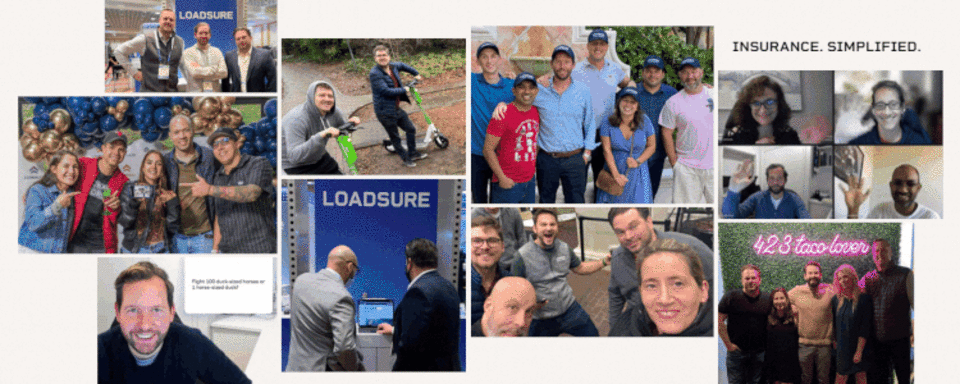Story by
Johnny Mccord
Tags /
- Company
- Culture
- Diverse
- Inclusive

When you’re tearing up the rulebook, you need to think differently. Different insights. Different mindsets. They fuel the creative energy that’s so powerful in driving a company’s success.
That’s the team I’m committed to building.
It doesn’t magically happen on its own, of course. Recruiting diverse talent and creating a safe, empowering culture in which that team can thrive requires focus and investment.
I’ve seen it at work, however, and I know how truly transformative this focus on diversity and inclusion can be.
The critical lesson of Inga Beale
When I worked in the London market as a Lloyd’s broker, I understood how unwelcoming it could be to women, people of colour, and the LGBTQIA+ community at times.
Sadly, Inga Beale—Lloyd’s of London’s first female and openly bisexual CEO—experienced this unwelcoming culture early in her career. Her openness and her commitment to transforming the Lloyd’s culture, however, has provided an important lesson.
How so?
Driven to succeed where others had failed, Inga came on board to digitalize the Lloyd’s market, which had operated on paper for more than 300 years.
What Inga initially believed was a technology challenge, however, quickly revealed itself to have a strong cultural component. She could see that the market often hired people that looked like it, and there was a strong “mates culture” that pressured people to conform. If she was to modernize Lloyd’s, she knew she’d need to attract young, tech-savvy employees who would feel free to challenge conventional thinking. Culture change would be key.
It’s why Inga made diversity and inclusion a central pillar of her work, why she banned alcohol from normal business hours, and why she took on “reverse mentors”—breaking down the rigid hierarchies that gave her insight into the market and how things needed to change.
In the end, the Lloyd’s culture changed significantly under Inga’s leadership. It is, in fact, her inclusive approach that she credits as key to the market’s successful digital transformation—and it has had ripple effects across the industry.
Today, the industry as a whole is more aware and changing for the better.
Diversity and inclusion require focus and commitment
The insurance industry can be a wonderful place to build a career, and I’m proud of the open, supportive culture we’re creating here at Loadsure. Still, I recognize that I, like many entrepreneurs, fell into some common traps early in the race to prove out my concept and secure funding.
For starters, this is a legacy industry. People simply don’t think of insurance when they’re first starting out. While some fall into it, many follow their families into it. The latter was certainly the case for me—the old boy’s network got me my job. And, as I built out our leadership team, me and my team relied heavily on the personal networks we’d nurtured in this predominantly white and male industry. We were moving fast and needed people we knew we could trust in the early, risky phase of business development. While an exceptionally talented, trusted group, the lack of diversity is something that plays on my mind.
What’s more, I tapped my father’s peers in the London market for guidance—thought leaders who were absolutely instrumental in helping me get Loadsure off the ground. As a result, however, the Loadsure board looked much like old Lloyd’s—older, white, and male.
How we’re doing things differently today
Now, with the Series A behind us and the financial stability to grow Loadsure for the long term, I’m committed to building the diverse team necessary to ensure our mutual success.
That means blind applications to protect against unconscious bias, company-wide diversity and inclusion training, EID policies and procedures that ensure gender pay equity and promotion decisions made free from discrimination, and actively recruiting for diversity. We’re already making headway as a result of this more focused intent, and I’m delighted to share that we recently added our first female board member, Alexia Arts, who is proving to be a dynamic addition to the team.
It also means embracing diverse engagement across our company—from an open door policy that creates a safe space for everyone to voice their opinion to Loadsure Connect, a diverse group that’s proposing ways we can deepen connection, grow support networks, and create a culture that gives everyone the freedom to learn, share, and thrive.
This work will be central to our growth.
After all, when you’re disrupting a 300-year-old industry, you need people who will challenge the old ways of doing business.